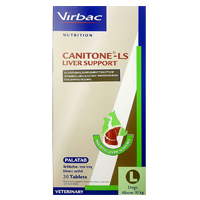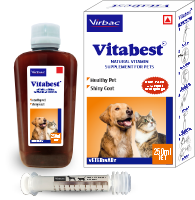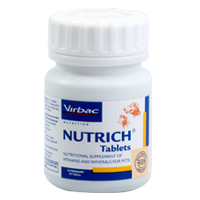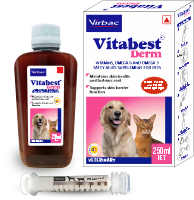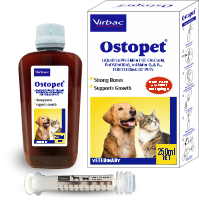
What nutrition do my puppy and young dog need?
The energy requirements of a young puppy are proportionally higher than those of an adult dog.
You mustn’t feed him standard adult dog food : he needs a very rich and specific feed to trigger the best start in life and to help him develop harmoniously.
Your puppy is still fragile and needs to be supported to face 3 imperatives : growing up harmoniously, getting used to digesting things other than breast milk, and getting a competent immune system.
Rapid growth requires involves providing a lot of energy (with low volume), because the ingestion capacity of puppies is still limited. Fats provide energy in concentrated form. Even more than an adult dog, a puppy requires a large amount of animal protein to satisfy his carnivorous diet and to cover his needs in amino acids. A good digestibility will allow an optimal use of the proteins. Adding prebiotics, probiotics and clay will also help to limit digestive problems, common in young dogs whose digestive systems are not completely mature.
Puppy food enriched with betaglucans (extracted from beer yeast) help to acquire the natural defenses of the puppy at a time when the immune protection provided by his mother will gradually disappear.
In small-size dogs, growth is regular until adulthood, whilst in medium- and large-size dogs (11kg and higher), growth occurs in 2 phases (puppy, then young dog).
In medium- and large-size dogs, after the peak of growth which takes place around 6 months, the energy needs decrease gradually.
It’s time to change your dog’s diet so he can reach his adult weight slowly but surely. A food that is too rich, without correctly measuring the daily quantities, may favour osteo-articular disorders and overweight.
Once his growth peak has passed, a puppy continues to develop : you need to provide him with all the elements he needs in sufficient quantities to continue his growth (protein, essential fatty acids, minerals and vitamins), whilst controlling the amount of energy he will consume every day. As the digestive system is not yet fully mature, we must also limit the share of carbohydrates (starch), because the young dog digests them less well than protein and fats.
The use of animal proteins in important quantities makes it possible to cover the high protein requirements of the growing puppy and provide him with the amino acids he needs. This high protein intake allows a harmonious growth.
To limit the risk of overweight, it is necessary that the food intended for a pup in the second phase of growth has a a lower energy density (a lower calory intake) than that of the food you give to him at the beginning. Fats are the highest caloric nutrients : it is necessary to limit their consumption to decrease the energy level of the ration (especially if your dog is neutered). This is especially true for large breed dogs (from 25kg), for which the growth is longer.
It is important to give your puppy a complete diet formulated specifically to allow him a harmonious growth. He will be safe from any nutritional deficiency. The distribution of supplements is not advised (ex : fish liver oil) : it will only unbalance the given ration.

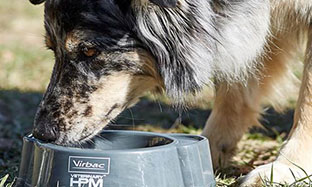
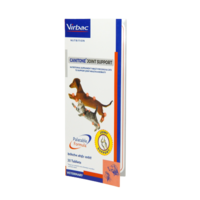
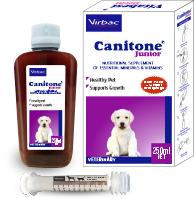
.png)
